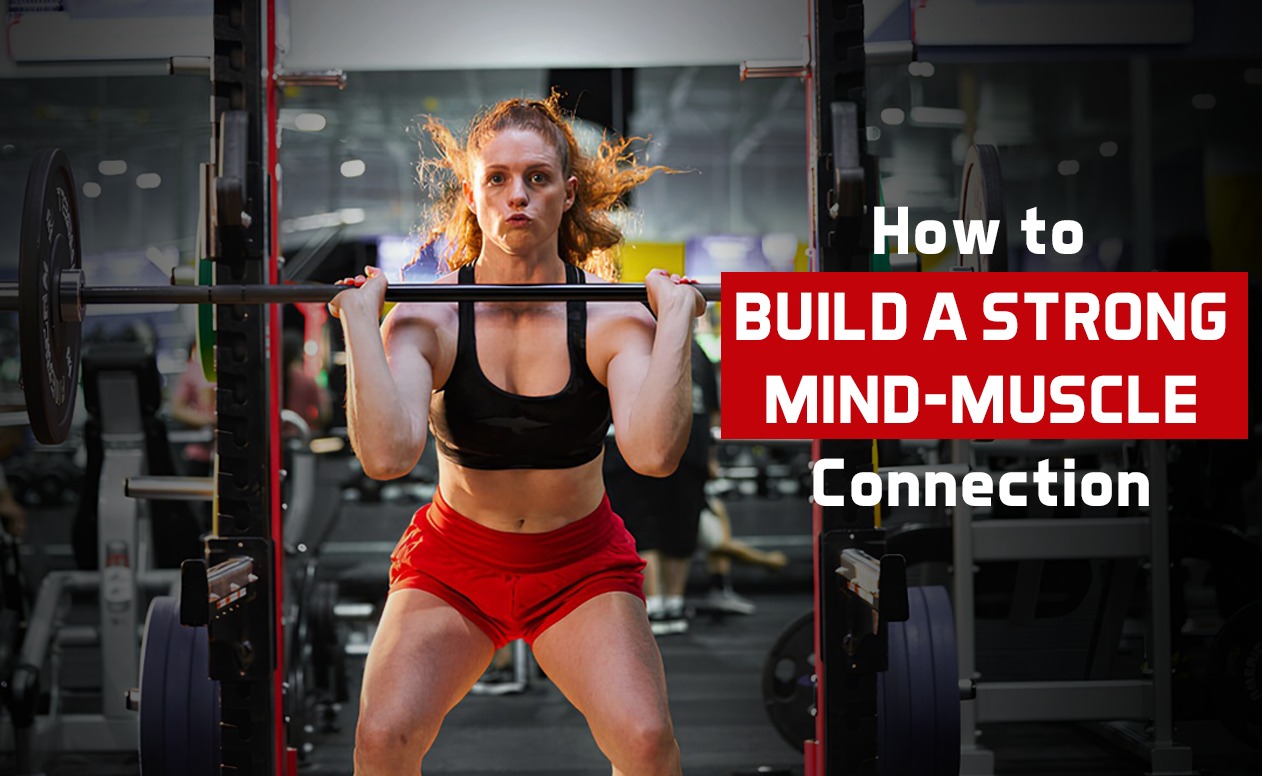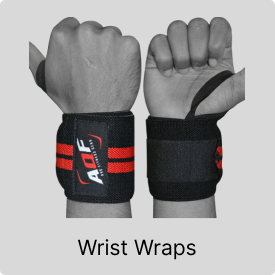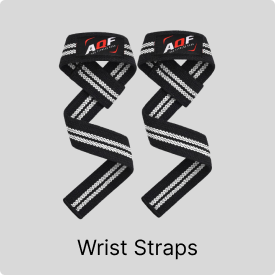How to Build a Strong Mind-Muscle Connection

When you hit the gym, do you just move without thinking about which muscles you’re working? You’re not alone. Many of us care more about seeing muscles grow than feeling them work.
But paying attention to your mind-muscle connection can really up your workout game. It helps you get stronger, keep better form, and see those gains you’re after. It’s about making every move count by really connecting what your brain and muscles are doing.
But the main question is: how do you build a strong connection between your mind and muscle? If you are also one of those who struggles to align their mind and muscles while working out, then you are at the right place.
In this blog, we will look into how you can make that happen. So, let’s get into the details:
What is the Mind-Muscle Connection?
The mind-muscle connection (MMC) means focusing on your muscles when you exercise. It means thinking about the muscle you’re working and feeling it tighten and relax as you move.
Suppose you are doing bicep curls with resistance bands. Instead of just doing the curls, you constantly think about the bicep muscles and feel the pump. This mind and body connection helps you build more muscles, and you will see better results with time.
This helps you make each of your exercises more effective. That way, you can build stronger and bigger muscles with time. It’s like you’re giving your muscles clear instructions on what to do, and they actually listen!
Why Does It Matter?
Building a strong MMC is super important for a few reasons:
- Makes your workouts better by focusing on the right muscles.
- Helps avoid injuries by keeping your form and balance correct.
- Improves your muscle control and helps you be more aware of your body.
- Improves your posture and how you stand or sit daily.
- Keeps your muscles working longer and more effectively.
- Speeds up your recovery after workouts.
The Science Behind the Mind-Muscle Connection
Neuroscience tells us that when we think about a specific muscle while exercising, our brain sends clear signals to that muscle. This helps the muscles work better, which is key for improving exercise results.
In 2018, Brad Jon Schoenfeld and colleagues conducted a study, published in the European Journal of Sport Science, examining the impact of mental focus on muscle growth during resistance training. The research involved 30 untrained men, divided into two groups: one concentrated on muscle contractions (mind-muscle connection group), while the other focused on the movement itself (external focus group).
The study’s key findings showed that the mind-muscle connection group experienced significantly greater muscle hypertrophy in their elbow flexors, with a 12.4% increase in muscle thickness, compared to 6.9% in the external focus group..
Techniques to Improve Mind-Muscle Connection
Here are some practical ways to strengthen your mind-muscle connection in your workouts:
1. Start with a Warm-Up
Begin with dynamic stretches to get your blood flowing. This helps in muscle activation and get ready. Then, do some simple exercises that target the muscles you will use later in your workout. This prep makes your main exercises more effective.
Let’s consider the chest. You may perform cable flys, sitting chest presses, flat dumbbell flys, and incline barbell presses. With a lesser weight, perform a warm-up set where the objective is to feel the chest tighten and extend with each repetition.
2. Slow Down Your Reps
Take your time with each exercise. Focus on each part: lifting, holding at the top, and lowering back down. This helps you really feel the muscles you’re using and keep your form right. Try pausing when your muscles are fully squeezed. It makes you focus more on the muscles at work.
For example, while doing a bicep curl while wearing wrist wraps, lift the weight slowly, count to three, and hold and squeeze at the top. Take three seconds to lower it back. This helps you focus and prevents injuries.
3. Use Visualization
Before you do an exercise, try to picture how the muscle moves. Think of the muscle fibers tightening and releasing as you exercise. Focus on the muscles you are working out. This mental picture can help you focus better and make your exercise more effective.
4. Limit External Distractions
To really connect with your workout, pick a gym spot where you can focus without distractions. Forget about everything else and concentrate on your breathing and how your muscles feel. This keeps your mind from distracting and lets you focus more on your exercise.
Studies show that if you work out in a place with fewer distractions, you have more effective workout sessions. For instance, athletes who practice where they can focus well often do better and can handle pressure more easily.
5. Incorporate Appropriate Gear
Using different pieces of fitness equipment can help improve your mind-muscle connection. Here’s how:
Resistance bands: They make your muscles work harder by adding tension, which activates your muscles more.
Lifting straps and wrist wraps: These help hold your grip and keep your wrists steady. This way, you can focus on the muscle instead of your grip.
Arm blaster: This gear keeps your arms steady, making your biceps work harder and helping you focus on them during curls.
6. Practice Mindfulness and Body Scans
When you exercise mindfully, you pay close attention to every movement your body makes. Start by noticing how each part of your body feels. Move your attention slowly and pay attention to any feelings or movements. This will keep you focused and help you connect better with your workout.
For example, when you do yoga, start by noticing how your feet feel on the mat, then pay attention to how your legs stretch, and keep focusing on your breathing. This helps keep your mind on your workout and not get distracted.
In Summary
You don’t have to change your whole workout to build a mind-muscle connection. Just change how you do your exercises. Focus on doing each movement well, not just doing more. Use proper fitness tools like resistance bands and wrist wraps, slow down, and stay focused. This will help you get better results and enjoy your workouts more.
Your mind matters as much as your muscles. Training it to work with your body can lead to better gains and a more enjoyable workout. Next time you’re in the gym, focus on the muscles you’re working. It could be the key to achieving your goals.






